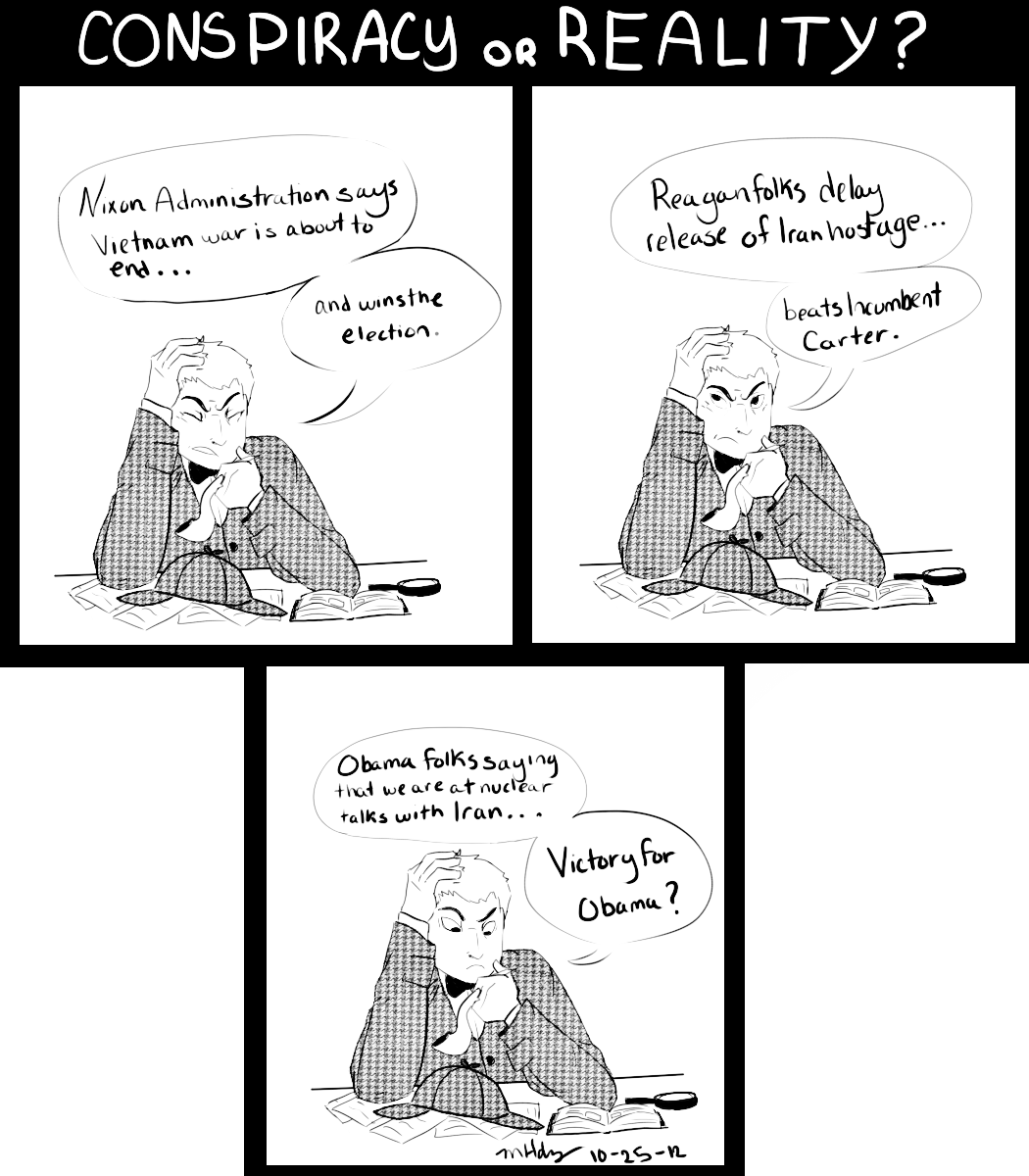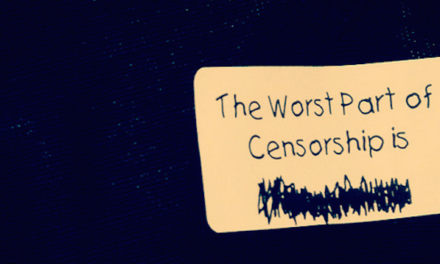It’s all falling into place, and perhaps George McGovern’s death let me know this could actually be true.
Forty years ago, the day was October 26, 1972, Republican incumbent Richard Nixon was dueling it out against Mr. McGovern for the oval office. Vietnam was now four years underway, leaving America craving peace. The race was neck and neck.
Then, the Republicans used their lifeline – their “October Surprise.” It was at this moment that one of the most memorable phrases of the entire war was said. Nixon’s National Security Advisor Henry Kissinger stood before the press at the White House and uttered in his German monotone accent, “We believe that peace is at hand.” Celebration amongst the American people broke out, as there was finally hope that they’d see their loved-ones return home. In fact, in that same press conference Kissinger announced that, “I would think no more than three or four days.”
Check your textbooks and let me know if the war in fact ended any time near October 26, 1972. What Kissinger had said was a lie. Although it was a rarity for Kissinger to make public announcements, it was no coincidence that he did this time opposed to Nixon himself. Although perhaps North Vietnam was coming close to peace talks, South Vietnam was not on the same page – peace was out of the question at this point. Nixon later wrote in his memoirs that after Kissinger’s announcement, he “knew immediately that our bargaining position with the North Vietnamese would be seriously eroded…and the problems it would cause with the South Vietnamese.”
To add to that, Nixon is heard on White House tapes telling Chief of Staff Bob Haldeman: “See, the lead [story] that came out of his stuff, probably, is that ‘peace is at hand.’ Now that sets us up one hell of a hurdle. I wouldn’t have said that…we have to live with it now for ten days.”
About ten days later, on November 7, Richard Nixon swept in the election, beating McGovern 520 to 17 electoral votes. This was the first time in American history in which a Republican candidate carried every southern state. McGovern won only Massachusetts and the District of Columbia, a truly lopsided electoral tally. A sea of red had just re-elected Nixon.
So what am I concluding? I’m not just inferring that perhaps Kissinger’s announcement, which of course proved to be false considering the war didn’t end until April of 1975, was a vehicle to boost election margins and guarantee Nixon the win. Well, their “October Surprise,” worked.
Not convinced yet? In 1980, the incumbent Democratic president Jimmy Carter was running against Republican California Governor Ronald Reagan. It was a rough time for Carter as Election Day also marked one year in captivity for the American hostages in Iran. Carter’s “October Surprise” was predicted, a major operation to rescue the hostages- just in time for the election. That of course, would surely guarantee the win. However, Reagan outsmarted the Georgian peanut farmer with an alleged deal with the Iranians to hold the hostages until after the election. Gary Sick, member of the National Security council under Ford and Carter, tirelessly worked in an investigation to prove Reagan guilty. After being impeached, former president Bani-Sadr of Iran said: “the Reagan campaign struck a deal with Teheran to delay the release of the hostages in 1980…by the month before the American Presidential election in November, many in Iran’s ruling circles were openly discussing the fact that…the hostages’ release would be delayed until after the election so as to prevent President Carter’s re-election.”
By no surprise, another electoral landslide took place; Reagan beat out Carter 489 to 49. Two separate investigations looked into Reagan’s “October Surprise,” however both concluded that there was no plan to seek to delay the hostages’ release.
The hostages were released on January 20, 1981, the same day Reagan was sworn into office – coincidence?
1968, ’72, ’80, ’92, ’00, ’04… and now we come to 2012, a race to the White House that has everyone wondering who will win. Since President Obama’s loss in the first debate, Governor Romney has been holding out on the lead. Gallup Polls have had Romney up by six to seven points this past week. David Axelrod, Obama’s campaign advisor, did a great job making sure President Obama was on his A game for the second round of debating, although Romney still holds the lead. With almost two weeks to go, what to do? Eureka! Another “October Surprise!”
On Saturday, October 20, The New York Times headline, “U.S. Officials Say Iran Has Agreed to Nuclear Talks,” hit the fan. What perfect timing, the weekend before the final debate, whose focus is on national security and foreign policy. In the article, author Helene Cooper writes, “It has the potential to help Mr. Obama make the case that he is nearing a diplomatic breakthrough in the decade-long effort by the world’s major powers to curb Tehran’s nuclear ambitions, but it could pose a risk if Iran is seen as using the prospect of the direct talks to buy time.”
This is great news, although the article seems a bit sketchy when Cooper writes: ‘The White House denied that a final agreement had been reached. “It’s not true that the United States and Iran have agreed to one-on-one talks or any meeting after the American elections,’ Tommy Vietor, a White House spokesman, said Saturday evening.” Is Obama using this as a vehicle to gain a last minute surge in votes only for the world to find out after November 6, that we have long way to go before one-on-one peace talks?
The article wrote that the Iranians were clear that negotiations would take place only after the elections, “telling their American counterparts that they want to know with whom they would be negotiating.” I am curious to see how Governor Romney addresses these alleged negotiations through the final two weeks in the campaign.
This just in: according to a Wall Street Journal/NBC News poll released on October 21, Obama and Romney are now tied 47% to 47%. Looks like this October “Obama Surprise,” may have worked after all.
P.S. I am not a conspiracy theorist. I’m just a thinker.
Brett Lichtenberg is a College freshman from Hewlett, New York.
The Emory Wheel was founded in 1919 and is currently the only independent, student-run newspaper of Emory University. The Wheel publishes weekly on Wednesdays during the academic year, except during University holidays and scheduled publication intermissions.
The Wheel is financially and editorially independent from the University. All of its content is generated by the Wheel’s more than 100 student staff members and contributing writers, and its printing costs are covered by profits from self-generated advertising sales.





